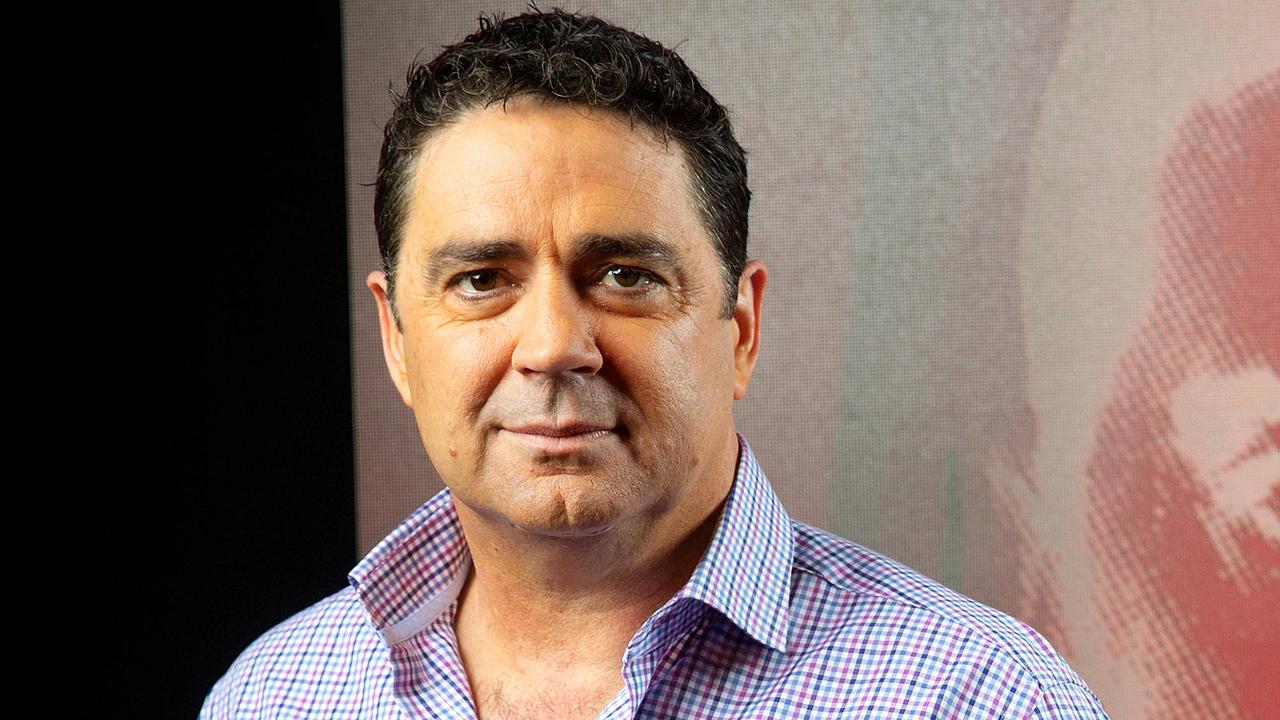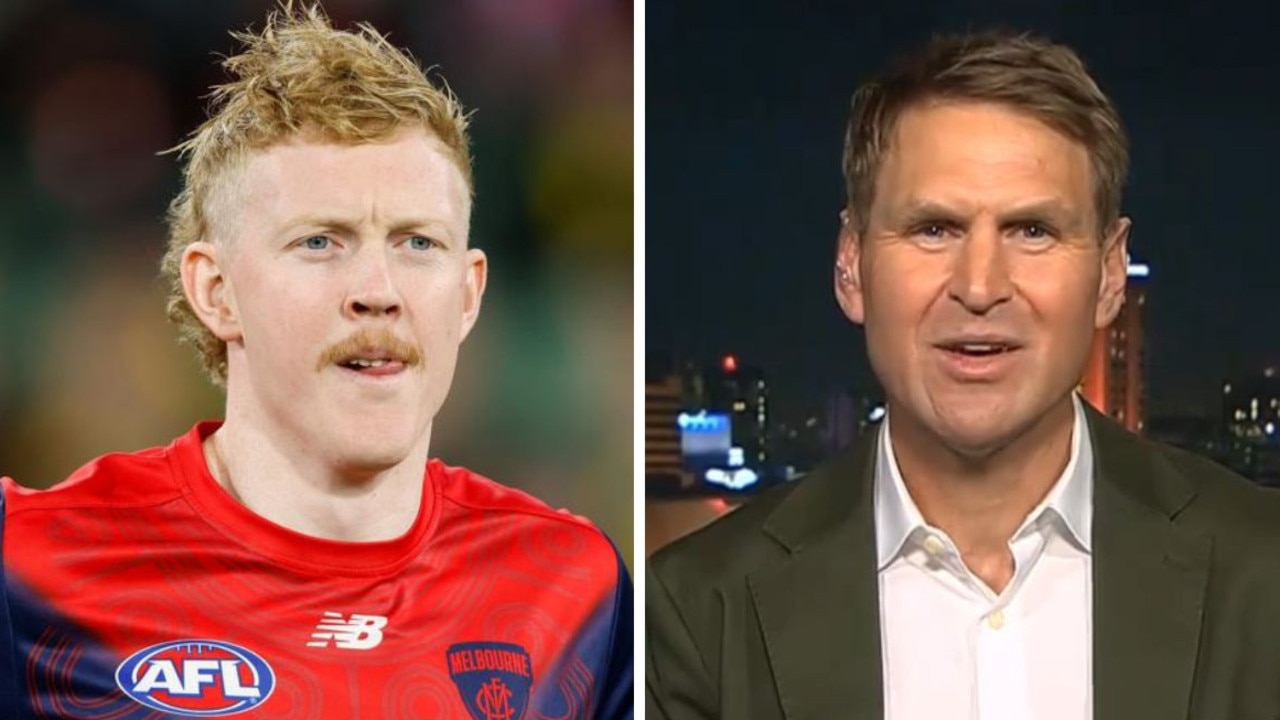50 years on, the men who won Melbourne’s last premiership await the next
IT’S one of the AFL’s longest premiership droughts. This weekend the men who won Melbourne’s last premiership gather to remember that great day 50 years ago — and hope for another soon.
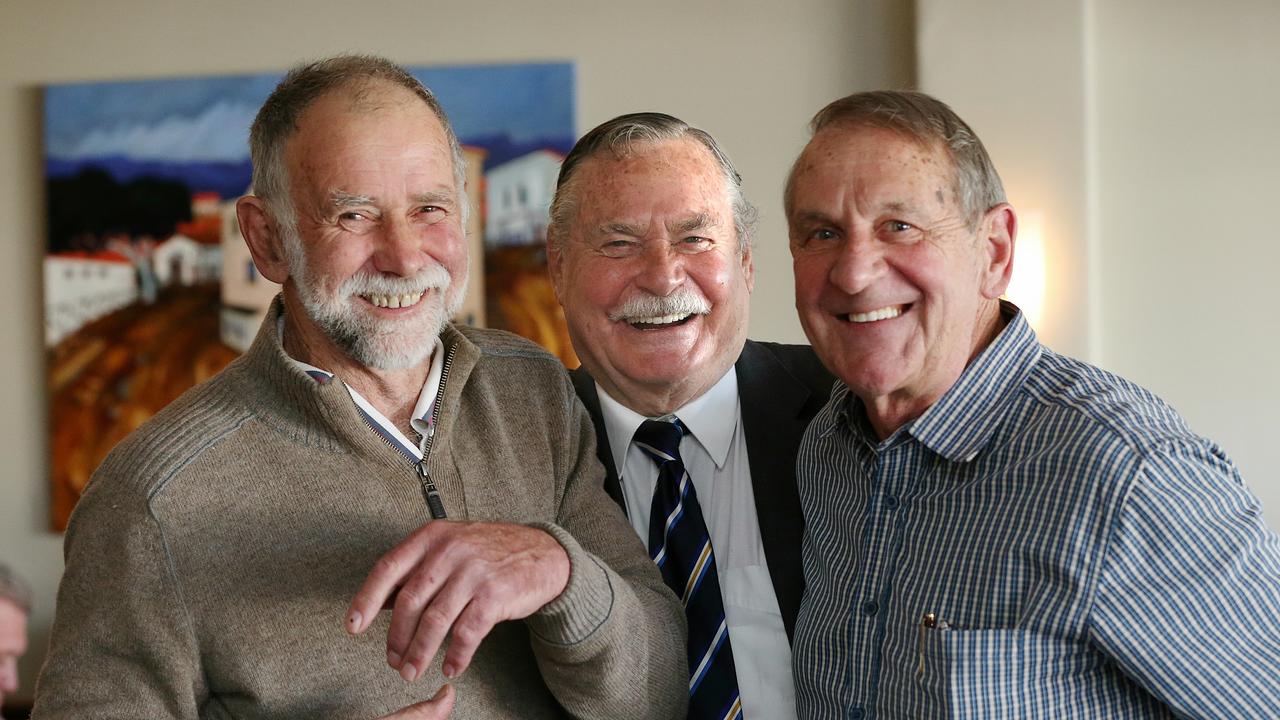
FIFTY-YEAR anniversaries are usually celebrated with great gusto.
And for the surviving members of the Melbourne Football Club team that won the VFL premiership in 1964, that’s how it will be when they reunite at the MCG for the traditional Queen’s Birthday fixture against Collingwood today.
But they will also do it with a sense of incredulity.
CHAMPION TEAM. NOT A TEAM OF CHAMPIONS
ROOS DISCIPLES SING FROM THE SAME BOOK
DEMONS CHASING RESPECT AGAINET OLD FOES
That’s because they cannot believe the most powerful club in the competition by far, having won an amazing six flags from eight grand finals in 11 years, could possibly still be without another one half a century later.
“You’d have won a lot of money if you’d been able to take that bet at the time,” says Ron Barassi, who played in all six winning sides and captained the last two.
“It’s almost embarrassing,” says Hassa Mann, the vice-captain.
The dynasty ended the following year when Barassi shocked the football world by accepting a lucrative offer to become captain-coach of Carlton, with an even bigger shock to follow when Melbourne sacked legendary coach Norm Smith mid-season, despite the Demons having won their first eight games.
Smith was reinstated after one match — and remained in charge until after the 1967 season — but the damage was done.
They finished seventh (when only four teams played in the finals) and never really recovered, reaching only two more Grand Finals. Both were disasters, Hawthorn winning by 96 points in 1988 and Essendon by 10 goals in 2000.
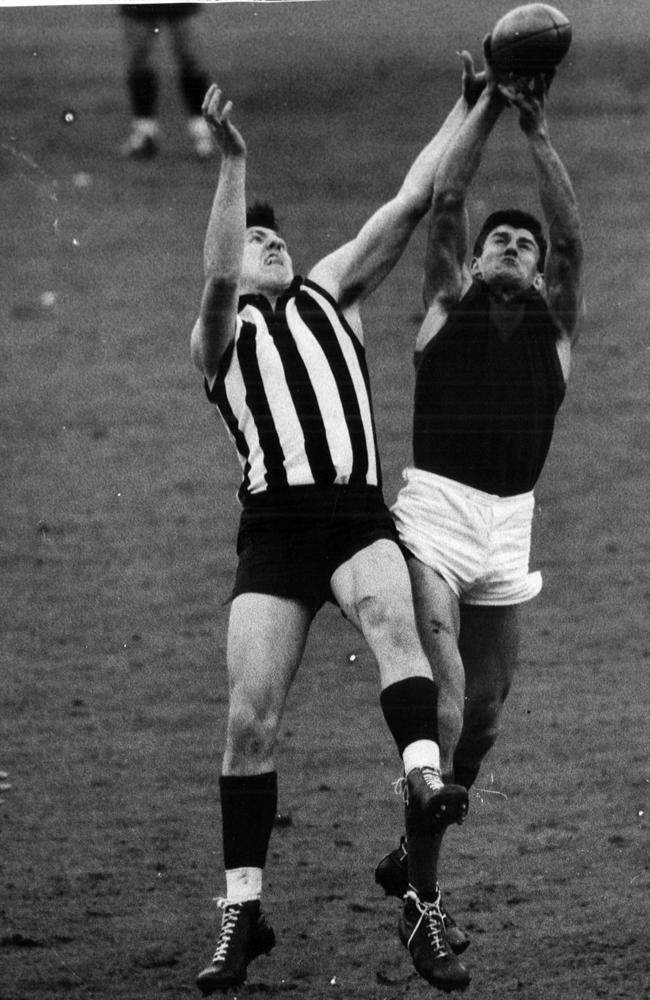
The club’s more recent battles for respect, credibility and perhaps even survival have been well-documented and the next premiership still looks to be some way into the distance despite an encouraging improvement this year.
The 1964 win — by four points over Collingwood — was one of the most dramatic ever.
Having finished on top of the ladder despite losing the last match to Footscray, and having crushed the Magpies by 89 points in the second semi-final, the Demons were hot favourites.
But they were without classy centre half-forward Ray Groom and tough defender Brian Leahy — the aptly-nicknamed “Wrecker” — because of injuries.
Melbourne led by 11 points at the last break and by 14 shortly after it, but Magpies skipper Ray Gabelich, a large, lumbering ruckman, kicked two goals in six minutes, the second of which remains unforgettable.
Gabelich took possession 40m out on the half-forward flank and galloped towards goal, bouncing the ball four times, almost losing control of it every time, and eventually slamming it through from the goalsquare to regain the lead with only minutes to play.
From the bounce, Mann — a good enough player to now be in the AFL Hall of Fame — immediately marked 25m out on a 45 degree angle — and missed! The memory of it still makes him squirm.
Then Neil Crompton swooped on a loose ball close to goal and snapped what turned out to be the winner, even though there was still nearly three minutes left on the clock.
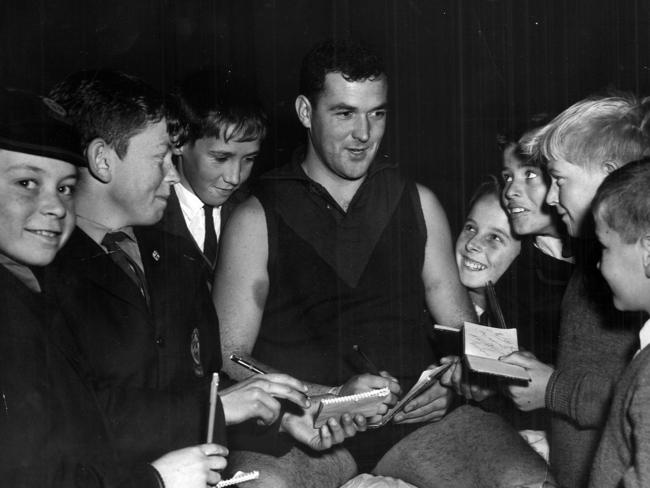
Who? That’s what just about everybody in the crowd of 102,469 — including this writer, a teenage spectator who was standing under the trajectory of Crompton’s kick, barracking hard for the Demons — were asking themselves.
“Froggy” was just about the most unlikely man in the game to kick such a goal — or any goal.
He was the designated back-pocket and was in the forward line — against Smith’s instructions — only because his man, rover Mickey Bone, had run the length of the ground and Crompton decided to go with him.
Although he had once kicked seven goals as a rover against North Melbourne seven years earlier, this was his first goal for five years and one of only 24 in his 99-match career.
No one was more surprised to see Crompton turn matchwinner than the fiery coach, who had given him strict instructions not to stray from the backline.
In the comprehensive notes he has written for distribution at the reunion, premiership forward-flanker Bryan Kenneally says: “Even the master coach must have enjoyed the fairytale finish no matter how unorthodox it had been.”
Yes — up to a point. “I didn’t know whether to abuse him for a lack of discipline or cry on his shoulder,” Smith said. “I’m glad he did use his initiative. There are times when a player has to and without him we would not have won.”
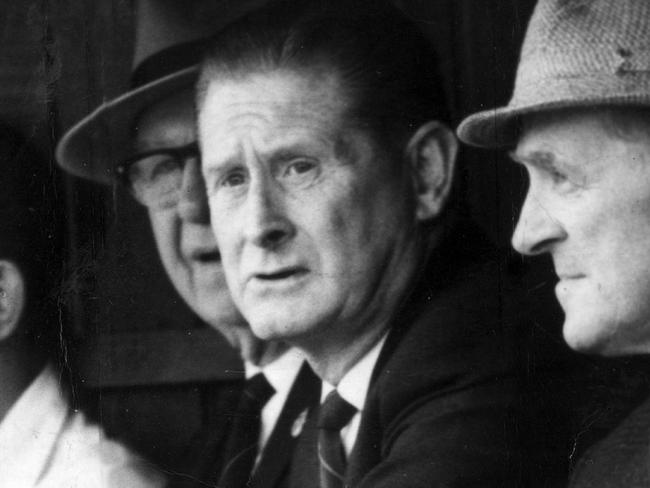
But according to author Ben Collins, who wrote the outstanding biography of Smith, The Red Fox, that was just a measured public front.
“He would vent his feelings to Crompton after the match and for some time after that,” Collins writes. “It was a sin to break a team rule regardless of the consequences.”
Barassi believes Crompton’s experience at coping with pressure as a cricketer — he played 45 first class matches as a batsman and superb fieldsman for Victoria — helped him make the right decision. “He didn’t lapse into panic,” he said.
Barassi didn’t know this would be his last match for the club with which his name had become synonymous, and for the coach who had literally been a father figure to him after the wartime death of his own Dad.
Barassi, Mann and Kenneally are all critical of the administration of the day for the way they treated Smith, who had been a superb player as well as a hugely successful coach — his record now immortalised in a statue outside the MCG.
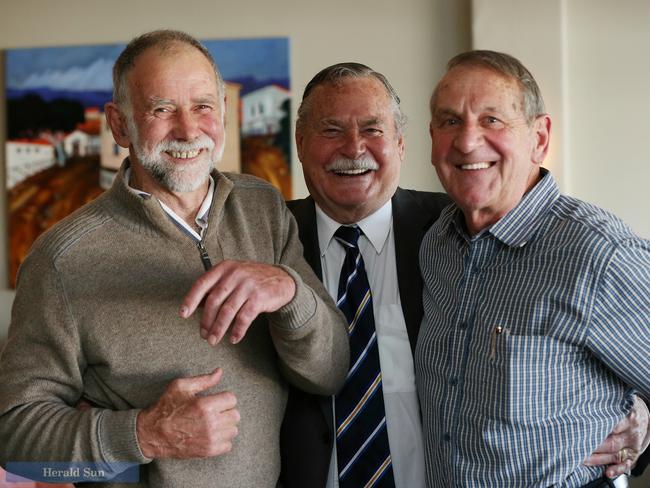
So what happened?
“Norm’s sacking was bigger than Barass leaving — a real double whammy,” said Mann, who was strongly loyal to the coach, as were all the players. Kenneally refers to him as “like a second father. I’ve got no bad word to say about Norm. He was terrific as a person and a coach.”
Smith fell out with the committee over a number of issues and was incensed by a perceived lack of loyalty when they refused to support him financially in a legal fight with umpire Don Blew, who he accused in late 1964 of being “subconsciously biased towards the underdog”.
The powerbrokers eventually accused Smith of disrespecting their authority and sacked him by a letter couriered to his home the night before a match against North Melbourne, sparking the biggest football news story of the era.
With a revolt by supporters imminent, the club relented and re-hired him on the Monday — but the tension did not dissipate and the club was never the same again.
Mann likens it now to what Essendon must have been going through last year with “something hanging over their heads.”
“Everyone was looking over their shoulders. It was unsettling,” he said.
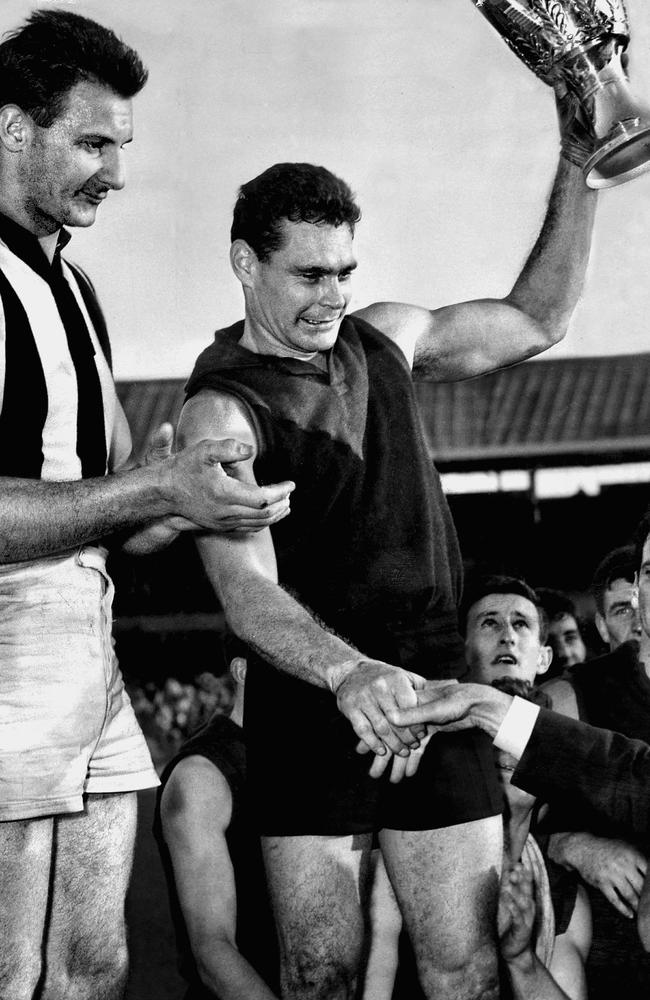
Mann believes some of the committee were jealous of Smith’s hugely successful presence and Smith was critical of them because they refused to pay for recruits — as other clubs were starting to do — and he could see Melbourne would soon drop off the pace.
Barassi agrees.
“He was the man who made us great. OK, we had the players and all that but he was a terrific coach and a steadfast man, morally idealistic in footy and in life.
“No one would ever had said that from that day we would not win for another half a century. Three or four years, maybe.
“(In 1964) We had a good administration but not a great one and it may have become a bit lazy.
“Norm would never have become lazy about premierships. He was very savage in that area.
“Other people did become not as committed as they should have been, put it that way.”
Originally published as 50 years on, the men who won Melbourne’s last premiership await the next

